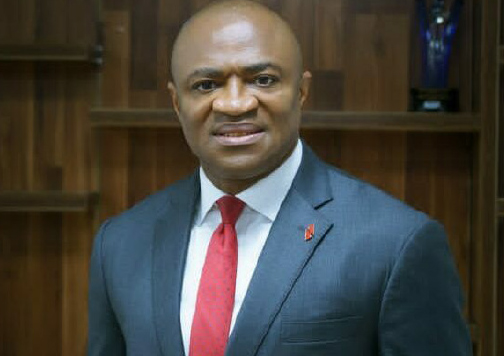United Bank for Africa (UBA) Plc has reached a significant milestone by declaring its largest-ever interim dividend payout. For the half-year ended June 30, 2024, UBA announced an interim dividend of N2.00 per share, representing a 300 per cent increase from the N0.50 per share paid in the same period in 2023.
The bank’s financial results for the first half 2024 revealed strong growth across all key metrics. UBA’s gross earnings grew by 39.6 per cent, increasing from N981.77 billion in H1 2023 to an impressive N1.371 trillion in H1 2024. This growth was fuelled by a significant rise in interest income, which surged by 134.3 per cent to N1.003 trillion compared to N428.2 billion during the same period last year. This rise in interest income was driven by improved earnings across all major lines, including investment securities, loans and advances to customers, and bank deposits.
Investment securities alone contributed a 167 per cent increase in income, while loans and advances to customers rose by 92.5 per cent, reflecting UBA’s focused expansion in its core banking activities. Additionally, income from loans and advances to banks saw an extraordinary 464.3 per cent rise, highlighting the bank’s ability to generate revenue from diverse sources. This growth is underpinned by Nigeria’s high-yield environment, where rising interest rates have provided a favourable backdrop for financial institutions to expand their interest income.
UBA’s balance sheet demonstrated continued resilience and growth, reinforcing its position as one of Africa’s largest banks by assets. As of June 30, 2024, the bank’s total assets stood at N28.3 trillion, representing a 37.2 per cent increase from N20.6 trillion in December 2023. A key driver of this growth was the significant rise in customer deposits, which grew by 33.7 per cent from N17.3 trillion at the end of 2023 to N23.2 trillion. This deposit growth underscores UBA’s solid customer base and ability to attract low-cost deposits, accounting for 82% of its total funding mix.
Loans and advances also experienced healthy growth, rising by 26.1 per cent to N6.99 trillion as of June 2024. The bank’s lending activity, supported by its risk management frameworks and broad customer base across 20 African countries, significantly contributes to its revenue growth.
UBA’s shareholders’ equity rose by 47 per cent, closing at N2.99 trillion at the end of June 2024, up from N2.03 trillion in December 2023. This increase in equity demonstrates the bank’s ability to generate internal capital, which will be crucial as it seeks to meet regulatory requirements and support its growth ambitions in the medium to long term.
The N2.00 per share interim dividend declared for the half-year 2024 translates to a total payout of N68.4 billion, making it the highest among Nigerian financial institutions. This dividend payout represents a yield of 7.8 per cent, positioning UBA ahead of its peers on the Nigerian Exchange Limited (NGX). In comparison, UBA’s interim dividend for the same period in 2023 was N0.50 per share, illustrating the bank’s significant leap in shareholder returns.
The board’s decision to increase the dividend by such a large margin reflects UBA’s solid financial performance and its determination to reward shareholders. Analysts project that the bank’s total dividend payout in 2024 could exceed N3.00 per share, supported by its sustained earnings growth and improved profitability.
Despite the challenging operating environment characterised by inflation, rising interest rates, and tightening monetary policies, UBA has maintained stable profitability. For the first half of 2024, the bank reported a profit before tax (PBT) of N402 billion, a slight decrease from the N403 billion recorded in H1 2023. Meanwhile, profit after tax (PAT) fell from N378 billion to N316 billion, mainly due to a higher income tax expense, which surged by 235.3 per cent to N85.22 billion.
The increase in tax expenses was a key factor behind the decline in net profit, but UBA’s strong revenue growth helped cushion the impact. The bank’s operating income grew by 19.5 per cent, reaching N936.59 billion in H1 2024, compared to N783.96 billion in H1 2023. Operating expenses also rose by 107.9 per cent due to inflationary pressures and regulatory costs, including personnel expenses, fuel costs, and contributions to the Asset Management Corporation of Nigeria (AMCON) levy.
Despite these challenges, UBA’s cost-to-income ratio remained competitive, settling at 50.2 per cent in H1 2024, compared to 37.2 per cent in the same period last year. The bank’s management remains committed to optimising costs through automation and technology-driven initiatives to enhance operational efficiency.
Highlighting the bank’s strategic focus on leveraging technology to drive growth and enhance customer experience, UBA’s group managing director and chief executive. Oliver Alawuba said the bank is making significant investments in digital banking, data analytics, and product innovation to support its long-term growth goals.
UBA’s ongoing technological investments have enabled it to simplify service delivery and offer self-service options for customers across its platforms, including online banking and mobile apps.
In addition to technology, UBA is also expanding its reach through strategic partnerships. The bank recently signed a Memorandum of Understanding (MoU) with the Pan-African Payment Settlement System (PAPSS), enhancing cross-border trade and financial integration across the continent. UBA’s collaborations with telecommunications companies have also grown, with funds under management from these partnerships now exceeding $1 billion.
Analysts are optimistic about UBA’s prospects, citing the favourable interest rate environment and the bank’s disciplined execution of its strategic goals as critical drivers of future growth. Commending the sturdy growth in the group’s core income line, as the elevated interest rate environment underpinned interest income growth, analysts at Cordros Research noted that the “preceding was enough to offset the lower non-funded income and surge in operating expenses amid the 60.9 per cent decline in loan impairment charges. Looking ahead, we expect the group to close the year positively, as the high-interest rate environment and improved risky asset creation will remain a catalyst for earnings growth.”





